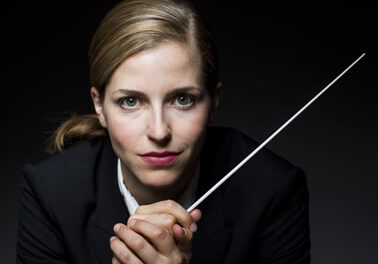By any name or title, opera galas tend to be very big deals, although the reasons for their presentations vary widely. A pair of recent galas offered by Capitol Opera Raleigh provided an opportunity to assess some of the “raw materials” the fledgling organization may use to secure its artistic future. The second concert, heard on the afternoon of April 18 in Carswell Recital Hall, was poorly attended, but those who were there were treated to 21 selections from eleven operas, performed by singers at diverse stages of development, ranging from advanced high school students to seasoned pros. The program was generous, perhaps to a fault, in terms of its content and length (this writer was obliged to bail out before the last number, due to another commitment), but because so many of the artists performed from memory, and because pianist Janis Dupre provided accompaniments for the entire program, there were very few lulls for stage setups. Three selections from Mozart’s Die Zauberflöte, featuring several new faces (and voices!) alongside experienced singers, some of whom have not been heard hereabouts for quite a while, got things underway in fine style and set the tone for the rest of the concert. Among the participants were veterans George Deaton, whose several appearances were among the afternoon’s highlights, and Bob Dey and Gregory Honeycutt, whose work evoked memories of long-ago concerts here in the Triangle. Others heard during the afternoon included folks whose names people familiar with our regional music scene will probably recognize: Cecily Anne Boyd, whose day job is with the Opera Company of NC; Henry S. Gibbons, who has appeared with Duke’s Collegium Musicum and in Long Leaf Opera’s 2003 Amahl; James Longmire, formerly of the St. Augustine’s College faculty; Lisa Fredenburgh, Director of Choral Activities at Meredith College; and Elizabeth Grayson-Williams, Miss North Carolina of 1982. Meredith teacher and mezzo-soprano Ellen Williams, COR’s Artistic Director, served as one of the stage hands and sang in the party scene from La Traviata – which was conducted by COR’s General Director, Joel Adams, former head of choral activities at Enloe High School.
Following the opening Magic Flute excepts, there were selections from Mozart’s Le nozze di Figaro, Purcell’s Dido and Aeneas (the famous Lament), Puccini’s La Rondine (the “big tune”), Cilea’s Adrianna Lecouvreur (ditto), and bracing excerpts from Verdi’s Rigoletto, culminating in the famous quartet.
After a brief intermission, chestnuts from Puccini’s Gianni Schicchi , Gounod’s Faust (ending with the final trio, but omitting the apotheosis), and Mozart’s Die Entführung aus dem Serail led to a sort of double grand finale involving soloists and the entire company, serving as the chorus – “Libiamo,” “Un di felice,” and “Ah fors’ e lui,” from La Traviata, and “Regina Coeli,” from Mascagni’s Cavalleria rusticana (which, as noted above, I missed).
Overall, the concert displayed some noteworthy voices, but the format precluded judging the singers’ abilities as actors or assessing their potential for (and staying power in) complete performances. Perhaps the program’s title – “Opera à la Mode” – was aptly chosen, although one could make a case for alternate titles, too, such as “Opera à la Carte.” That said, this new company is doing something not seen and heard in Raleigh for a long time – using local artists in opera. That the singers did as well as they did – and some sang spectacularly – gives one hope for the future.
The printed program left something to be desired. No voice types were listed, and although the names of the singers were listed following the titles of the selections from the operas, it was not always a simple matter to figure out who was singing what. There were no texts or translations – a sentence or two explained what was going on in the various arias and scenes. The accompanist was listed only among the “special thanks” section, with other credits – after the ushers! There was at least one artist change, and one selection was omitted, but it was left to the attendees to figure these things out for themselves. Short bios of the singers would have been most welcome.
The next event on COR’s full schedule is a benefit concert involving soprano Arisa Kusumi and mezzo-soprano Katja Nicolai, planned for May 1 in the same venue. See our calendar for complete details.
We realize that booking venues is tough hereabouts…, but if one assumes that the potential audience for opera in the Triangle is of finite size, then our various companies owe it to themselves (and to opera fans) to schedule their offerings so direct conflicts are avoided. As it happened, COR’s galas overlapped two of Long Leaf Opera’s three final performances of the current season – and COR’s upcoming benefit concert competes with two noteworthy choral programs, in Raleigh and Durham.











